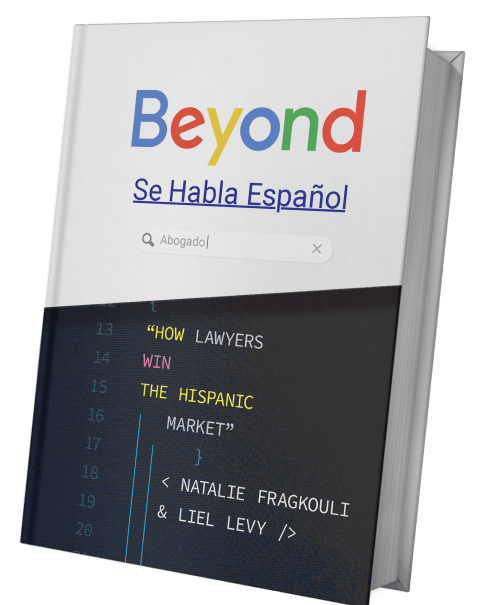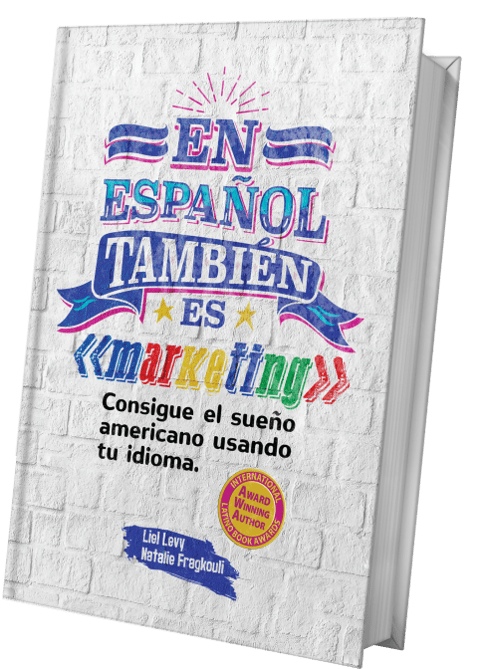Law Firm digital marketing is a complex task, and you can follow multiple paths on the road to success. We often discuss PPC topics on our blog, but we don’t work in silos and consider law firm SEO to be equally important. Today, we’re back with another guide on search engine optimization for attorneys, explaining the most critical and common mistakes you have to avoid to rank high without risking penalties.
SEO is one of the most complex digital marketing components, requiring long-term commitment, careful research, and benchmarking. Successful SEO combines technical expertise and the creation of unique and original content (among other things). In previous articles, we’ve discussed the fundamentals of law firm SEO. We explored the value of link building, the latest developments with core web vitals, and the effective usage of metatags. As a law firm owner or marketing executive/director in a law firm, you likely receive multiple emails from agencies offering immediate growth in your organic ranking. As we already stated, SEO isn’t fast; it requires time and commitment, which means that you’ve got to keep your eyes open for things to avoid. What are the biggest red flags that can harm your strategy if you don’t avoid them?
We’ll split our article into three parts: technical, link building, and content. What’s common for all of them is that you should by no means use black hat SEO; we’ll explain more as we get into details and explain the specifics.
- The Most Critical Technical Errors to Avoid
- Do not use flash. That’s one of the oldest tips we can give, but nowadays, it’s more crucial than ever. Adobe has officially “killed” flash, which means that it will no longer update or support it. This will create security gaps, and, in addition search engines don’t crawl flash content, so you’ll have to replace any flash content you have now and avoid using it in the future.
- Website security. It’s almost a decade now since Google announced that HTTPS is a ranking signal. Google, along with nearly every tech giant, values and invests in user privacy and security. Consequently, secure connections and SSL certificates will help websites rank better. However, ranking factors and signals aren’t the only reasons why an SSL will help you with SEO. It’ll improve the user experience on your law firm’s website as well, which is one of the most significant things search engine’s look for.
- Website speed. Loading speed is another important ranking factor, and optimizing your website for speed is one of the first technical aspects you should look into. Not using browser cache-ing and not enabling data compression can harm loading times. Additionally, using AMP will drastically reduce loading time, especially for mobile devices.
- 4xx and 5xx error codes (i.e. client and server errors). Running audits on your website for broken links and pages is vital, as it will minimize error pages and send signals to crawling bots that everything is running as expected. On the contrary, having 4xx and 5xx errors on your law firm’s website can undermine your PageRank and harm your domain’s user experience.
- The Most Critical Link Building Errors to Avoid
- Do not buy links. This is one of the first and most critical points we always mention, and you can also find it on our link-building dedicated blog article. First and foremost, buying links is against Google’s guidelines and policies. The search engine allows paid links for advertising purposes, but they have to follow a specific path, and the publisher should mark them as “no-follow.” If advertisers use paid links to manipulate the SERPs, they will be penalized. How can Google tell, you might wonder. Most websites that sell links do it in bulk, meaning they will offer them to multiple businesses and websites. When Google notices unusual activity and potentially irrelevant links, it will look into it and subsequently take action, punishing those acquired links and penalizing all those involved parties.
- Do not get into link schemes. This is a similar point to what we previously mentioned, but instead of giving money for the links, you’d be giving services or discounts to services. While that’s not forbidden, it would also have to be marked as “no-follow.”
- Do not overuse footer links. This SEO technique belongs to the past, and you should avoid overusing it. The logic behind it was that footers appear on every page on your website, but adding commercial links at scale can be perceived as search engine manipulation and lead to penalties.
- Avoid hidden links. That’s a red flag for Google, as it doesn’t add any value to your website’s visitors, so its sole purpose is clearly to manipulate search engines and help a page rank higher. This includes deceptive techniques in the form of links in font size zero, links hiding behind images, using punctuation marks to hide links, or using CSS to set links off-screen.
- Do not overuse anchor texts. Matching page titles to page headlines/titles isn’t necessarily a black hat technique or one that you should avoid using altogether. Overdoing it, however, can be perceived as manipulation or even spamming. We’d suggest keeping it brief and relevant to the page you link from without keyword stuffing.
- The Most Critical Content Mistakes to Avoid
- The Most Critical Link Building Errors To Avoid. Google is all about quality and unique/original content informing and educating searchers and providing them with answers to their queries. Google crawls all available content. They can tell if the content is duplicate and can penalize the website, drastically affecting its rankings.
- Do not use keyword stuffing techniques. This used to be one of the oldest techniques some SEOs utilized in the past to manipulate search results and force websites to the top. As we’ve already explained, Google is all about high-quality results, and therefore this technique is perceived as black-hat SEO, meaning that it will consequently lead to search penalties.
- Avoid hidden contact. This is similar to what we explained above, with hidden links. Even if you’re intentionally putting hidden content on your website, you must always be careful with what you upload. For example, if you take a guest post that deliberately or unintentionally includes hidden content, or if your comments section isn’t secure enough to single it out, you could get penalized. Tip: You can still use hidden content to hide or allow specific parts for certain devices (mobile or desktop).
- Be careful with your alt tags. We’ve previously devoted an article on image optimization for law firms and part of it talks about alt tags and how to make the most out of them. We would strongly recommend avoiding keyword stuffing your alt tags, as they are used to help visually impaired readers and search engines understand the images on your website. Keyword stuffing can harm your rankings as it doesn’t promote user experience and makes it difficult for crawling bots to understand your info and rank your website effectively.
What are our key takeaways?
- SEO is neither an easy task nor one that you can carry out quickly. There are no shortcuts to rank on the top of the SERPs. Instead, following the best practices and providing a seamless user experience full of unique and original content is what will eventually get you there.
- Following any black hat techniques can harm your SEO efforts, leading you to penalties that are hard to recover from. It’s always better to build correctly than fix it after it’s already broken.
- There are three main pillars that we insist on in this article: technical, link building, and content. All are essential, and following a well-researched, complete SEO strategy will help your law firm get the rankings you are looking for.



